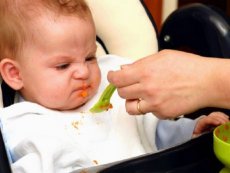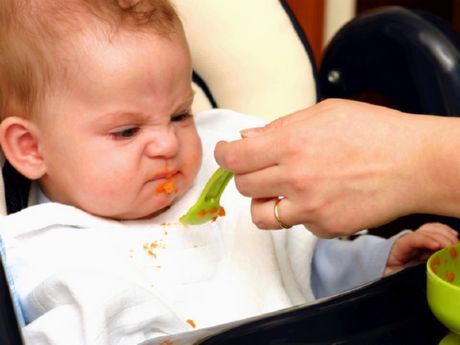Medical expert of the article
New publications
Causes of constipation in children
Last reviewed: 04.07.2025

All iLive content is medically reviewed or fact checked to ensure as much factual accuracy as possible.
We have strict sourcing guidelines and only link to reputable media sites, academic research institutions and, whenever possible, medically peer reviewed studies. Note that the numbers in parentheses ([1], [2], etc.) are clickable links to these studies.
If you feel that any of our content is inaccurate, out-of-date, or otherwise questionable, please select it and press Ctrl + Enter.

Features of constipation in children
Although there are some medical causes of constipation, such as cystic fibrosis and hypothyroidism, constipation is normal for most children. Warning signs that a child with constipation may have a more serious condition include vomiting, constipation, weight loss, weight loss or weight gain, fever, bloating, or poor appetite.
Constipation is generally defined as weak bowel movements that are difficult and painful. Babies will experience straining in the rectum and may cry, especially at night. A baby may have problems with constipation even when their stools are soft, if they are not having a bowel movement every day, but rather every two or three days. It is also important to remember that many constipated babies who are breastfed may have bowel movements as infrequently as once a week or two.
Why do children get constipated?
One of the things that frustrates parents is not understanding why their child is constipated. While many parents understand that too much cow's milk, a low-fiber diet, and not enough fluids contribute to constipation, other children on the same diet may not be constipated.
One reason for constipation in a child may be special dietary needs. For example, a child may drink an average amount of milk, which is not appropriate for other children, it may be "too much" for them.
What affects constipation in children?
In addition to the child's diet, another major factor that contributes to constipation is weak bowel function. Often this occurs after the child has grown older and continues to have difficult and painful bowel movements, which may occasionally occur during bowel movements.
After this, the child may associate their bowel movements with pain, so they will try to hold the stool. This creates viscous fecal masses that cannot leave the intestines, bowel movements are very painful. Many parents mistakenly think that children sit on the potty for a long time on purpose. But this is not true - the child feels very tense, cannot empty the rectum, they fidget on the potty and try to run away without emptying the intestines.
This happens because the child is afraid and tries to avoid painful bowel movements. Another factor that can contribute to constipation is a negative experience with bowel movements.
Constipation is also common in children with special needs, such as Down syndrome, mental retardation, cerebral palsy, and it can be a side effect of many medications. Especially those taken without medical supervision.
What causes constipation in children?
For the average child, constipation usually results from a combination of high-fat, low-fiber diets. This can include too much whole milk, too many fermented milk products, and too few fruits and vegetables.
Avoid feeding your baby foods that traditionally can cause food to stick in the stomach and intestines, including:
- Bananas
- Most dairy products, such as cheese, yogurt, ice cream, and, as mentioned, milk. If you have already restricted dairy products due to constipation, be sure to find an alternative source of calcium for your child, such as calcium-fortified orange juice.
- Boiled carrots in the diet
- Foods that are higher in fat, such as French fries and processed foods
- White polished rice
Simple changes to your child's diet can help prevent constipation and may include:
- Changing milk fat to a lower percentage or drinking soy milk instead of cow's milk (at least until age two), both of which may be lower in fat and therefore less irritating to the gut than whole milk
- Limit your baby's milk intake to about 16 ounces (480 ml) per day
- Increase your child's fluid intake each day, especially water and apple or pear juice and/or prune juice
- Increasing the amount of fiber and bran in the child's diet, you need to feed him foods with high fiber content, they should make up the majority of the child's diet



 [
[